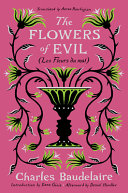

Most ebook files are in PDF format, so you can easily read them using various software such as Foxit Reader or directly on the Google Chrome browser.
Some ebook files are released by publishers in other formats such as .awz, .mobi, .epub, .fb2, etc. You may need to install specific software to read these formats on mobile/PC, such as Calibre.
Please read the tutorial at this link: https://ebookbell.com/faq
We offer FREE conversion to the popular formats you request; however, this may take some time. Therefore, right after payment, please email us, and we will try to provide the service as quickly as possible.
For some exceptional file formats or broken links (if any), please refrain from opening any disputes. Instead, email us first, and we will try to assist within a maximum of 6 hours.
EbookBell Team

4.4
102 reviewsKnown
to his contemporaries primarily as an art critic, but ambitious to
secure a more lasting literary legacy, Charles Baudelaire, a Parisian
bohemian, spent much of the 1840s composing gritty, often perverse,
poems that expressed his disgust with the banality of modern city life.
First published in 1857, the book that collected these poems together, Les Fleurs du mal,
was an instant sensation—earning Baudelaire plaudits and,
simultaneously, disrepute. Only a year after Gustave Flaubert had
endured his own public trial for published indecency (for Madame Bovary), a French court declared Les Fleurs du mal
an offense against public morals and six poems within it were
immediately suppressed (a ruling that would not be reversed until 1949,
nearly a century after Baudelaire’s untimely death). Subsequent editions
expanded on the original, including new poems that have since been
recognized as Baudelaire’s masterpieces, producing a body of work that
stands as the most consequential, controversial, and influential book of
poetry from the nineteenth century.
Acclaimed translator and
poet Aaron Poochigian tackles this revolutionary text with an ear
attuned to Baudelaire’s lyrical innovations—rendering them in “an
assertive blend of full and slant rhymes and fluent iambs” (A. E.
Stallings)—and an intuitive feel for the work’s dark and brooding mood.
Poochigian’s version captures the incantatory, almost magical, effect of
the original—reanimating for today’s reader Baudelaire’s “unfailing
vision” that “trumpeted the space and light of the future” (Patti
Smith).
An introduction by Dana Gioia offers a probing
reassessment of the supreme artistry of Baudelaire’s masterpiece, and an
afterword by Daniel Handler explores its continued relevance and
appeal. Featuring the poems in English and French, this deluxe
dual-language edition allows readers to commune both with the original
poems and with these electric, revelatory translations.